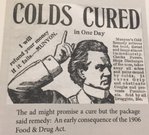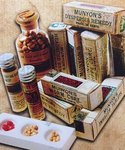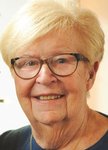


I have always wondered about the whole chunks of history that have eluded us and disappeared into the mists of time because no one considered them important enough to record.
Perhaps because I grew up as the daughter of a pharmacist who often debunked patent medicines he considered “quackery,” I was intrigued by a book by a professor emeritus of chemistry at Lehigh University who brought life to one of those forgotten chunks — and the flamboyant marketer of medicines.
The author, Dr. Ned D. Heindel, calls himself simply an “American chemist,” but he’s far more than that. He’s an amazing storyteller.
His newest book, “Medicine, Music and ‘Money’ Munyon,” introduced me to the multi-talented James Monroe Munyon (1848-1918), whose brilliant medical marketing made him a fortune and a household name.
Heindel has documented and preserved the story of this little remembered entrepreneur. He calls him “America’s most colorful medical huckster.” Munyon’s shadow is long.
Munyon spent fortunes on advertising. Some of his methods, such as slogans and jingles, are still used by Big Pharma today — and are still effective. Yet most of us have never heard of this entrepreneur who owned businesses in this region. We have Heindel to thank for telling his story.
Munyon nicknamed “Money” Munyon for the ease with which he accumulated the green stuff, was a reporter turned successful publisher who saw an even more rewarding future creating homeopathic medicines in the early 1890s.
Heindel explained that a group of German immigrant physicians had brought this alternative form of medicine to the Lehigh Valley in the early 19th Century. Homeopathy was based on the belief that natural substances, prepared in a special way and used most often in very small amounts, could restore health.
The self-styled “doctor,” who was not a physician, grabbed the idea and ran with it. Munyon’s pharmaceutical company was widely known for the colorful personality of its founder and CEO, Heindel said.
The Munyon Homeopathic Home Remedy Co. did employ doctors, though, and eventually had offices, warehouses and production facilities in Philadelphia, Wynnewood, Churchtown in Lancaster County, Allentown and Scranton.
Unlike other patent medicine promoters Munyon “constantly sought the limelight,” Heindel said. He was a songwriter, magazine publisher, hotelier and land developer and his name, for a quarter century, was more recognized in most American homes than that of the president, the author said.
Heindel said Munyon used trademarks, slogans (such as “There’s a Munyon Pill for Every Ill”) sales gimmicks, personal magnetism and the print media to a greater extent than previous drug manufacturers ever contemplated. Advertising was his secret weapon, according to the author.
Munyon produced a line of tiny pills sold in glass vials in cardboard boxes, many of which bore his image. He promoted the pills for rheumatism, colds, dyspepsia, bladder problems, liver disease, neuralgia, constipation, headache, worms, heart palpitations, malaria, catarrh and female problems. And the cash registers jingled.
Finally, in 1910, Munyon pleaded guilty under the Pure Food and Drug Act and agreed to re-label his products as remedies instead of cures. His pharmaceutical business continued to thrive. He died eight years later in Palm Beach at one of the hotels he had built.
At Lehigh, Heindel specializes in pharmaceutical research and is a medicinal research consultant to several pharmaceutical companies.
He is not only a chemist but is also an expert on the history of chemistry and, along the way, has unearthed a number of interesting characters in the field.
Many of his stories deal with arcane, all-but-forgotten medical practices, including those of the Pennsylvania Dutch pow-wow doctors, who often treated ills with incantations. He has frequently lectured about these folk healers who sometimes practiced in Upper Bucks.
Heindel’s book is available for $15, plus shipping, from the Northampton County Historical and Genealogical Society, 342 Northampton St., Easton PA 18042.
Kathryn Finegan Clark is a freelance writer who lives in Durham Township. She can be reached at kathyclark817@gmail.com.
Join our readers whose generous donations are making it possible for you to read our news coverage. Help keep local journalism alive and our community strong. Donate today.